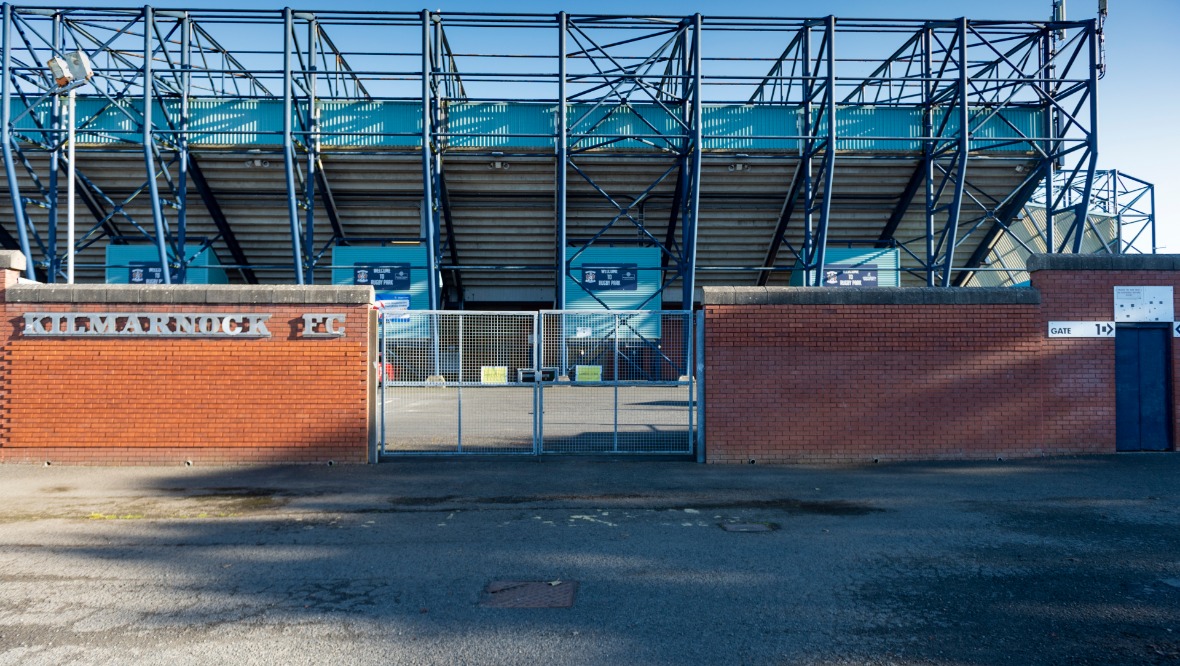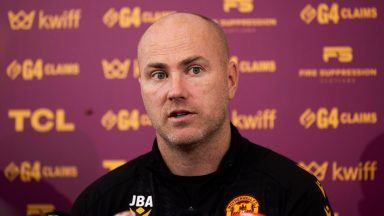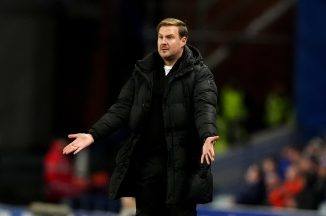The only immovable fixture in Scottish football right now is coronavirus.
Friday brought news that this year’s Challenge Cup competition was binned after clubs decided there was no point without fans to see it contested as restrictions remain in place.
While that competition was written off completely, the ones that go ahead face their own disruption after Kilmarnock suffered an outbreak of the virus, forcing their Premiership match against Motherwell to be postponed and putting two Betfred Cup fixtures in serious doubt.
The signs from Rugby Park had been ominous. Wednesday saw the club report that three players had tested positive for Covid-19. By Thursday that number had risen to six.
Discussions with the health authorities saw the first team squad told that they should all start a period of self-isolation and after instantly complying, Kilmarnock requested that Friday evening’s league match be postponed.
Their reasoning was simple: not a single first team player would be available to play football for ten days.
From there it was off the pitch and into the rulebook with all eyes on the SPFL and decisions that could have major ramifications through the season.
The league agreed to Kilmarnock’s request but their next step was perhaps unexpected.
There was no announcement of a rescheduled date but instead of an investigation into the circumstances of the viral outbreak within the club.
A spokesman for the SPFL said: “No new date for this fixture has been set, pending the outcome of the SPFL investigation.”
Kilmarnock don’t know how their players became infected, and believe they have followed all of the protocols, but they’ll now look to convince the league of that.
If the SPFL find that all the correct steps have been taken, the game will be rescheduled for the first available date. No forfeit, no problem, and an acceptance that as the country fails to prevent the spread of disease, football clubs aren’t immune either.
If the investigation finds fault with Kilmarnock’s approach and that something had been missed that could have stopped the spread within the club, a different path is followed.
Kilmarnock would then be charged with breaking the rules – a committee would be convened to pass judgement and a range of sanctions or punishments could be handed down, including forfeiting the match.
There was no mention made of Kilmarnock’s next two fixtures, against Falkirk and Dunfermline, in the SPFL’s other competition, the Betfred Cup.
Those League Cup matches take place within the self-isolation period so, again, the Ayrshire side will have no first-team players to contest the game.
The SPFL will meet again on Monday but a fresh request for a postponement is unlikely to be granted. Clubs were asked before the competition started if they were confident that they would be able to fulfil their fixtures.
If they can’t, the tournament rules are clear that the game is forfeit with a 3-0 scoreline. Rules are rules, and each competition and situation is different but after a few incidents there’s no clear pattern as to how clubs will be treated.
St Mirren may look at Kilmarnock’s situation and note that while the full Rugby Park squad is isolating, their own situation when they had no fit goalkeepers to play against Hibernian saw a request for a postponement rejected by the SPFL.
The Paisley side saw one of their own fixtures postponed earlier in the season but not at their request.
That was when the Scottish Government made a request – that would not be denied – for Celtic and Aberdeen to have a spell on the sidelines after their players broke the rules.
Celtic had one player self-isolating but missed two games, Aberdeen had eight players out and missed three games. In that case, Boli Bolingoli and the ‘Aberdeen Eight’ were in the wrong and were banned by the SFA.
The clubs’ own disciplinary charges snuck under the wire to some extent though. Like with Kilmarnock, an investigation took place and a disciplinary panel was convened.
It concluded that player behaviour was beyond the clubs’ control to some extent and that both Celtic and Aberdeen had given their best efforts to keep to the protocols.
Fines of £30,000 were handed down but all but £8,000 suspended and the clubs were congratulated on the efforts they had made since the offending incidents.
There’s no doubt that all clubs sat up and took notice when Celtic and Aberdeen were publicly slammed and the game was put on notice about behaviour.
But a firm warning to players not to flaunt the rules and put themselves and others at risk isn’t enough in itself to keep clubs Covid clear.
Kilmarnock don’t appear to have been flouting the rules, and though they insist all safety precautions were taken, if there was to be a flaw uncovered then there’s no knowing the outcome of a disciplinary process with the only precedent showing a mixture of punishment and praise.
If no gap is found in their procedures, they may find themselves with a league fixture rescheduled until all players are available but forced to forfeit two cup games as a result of the very same circumstance.
Threats of sanctions, or forfeit results, won’t be the motivating factor to take safety precautions and follow the protocols for clubs; their community roots and reliance on togetherness and team-building will ensure that best efforts are made in the most part.
For those who do fail to keep out a virus that has proven impossible for nations to shift for months on end, there should at least be a clear expectation of what is to follow.
Kilmarnock will find out on Monday if they have to be up for the cup. But it could take a while before they find out if their cancelled Friday night football is a case of forfeiture or just a match far in the future.


 SNS Group
SNS Group

























